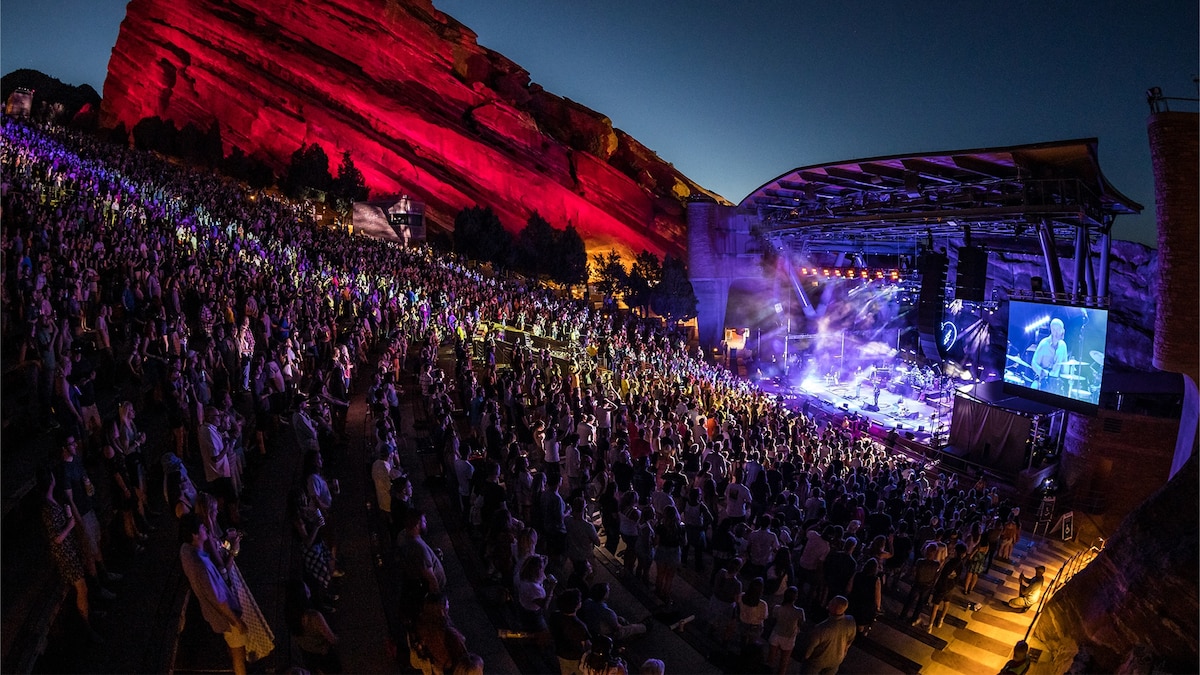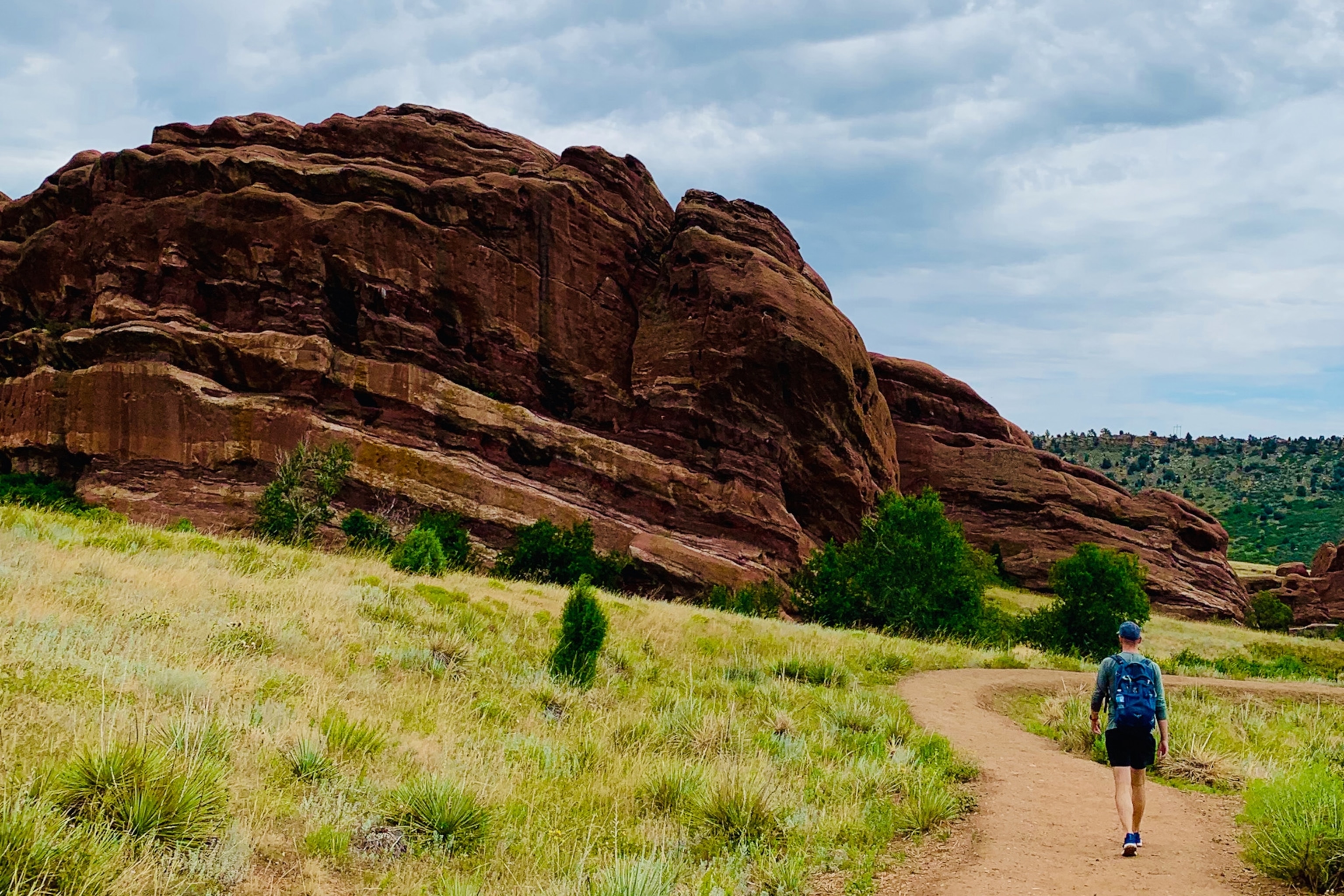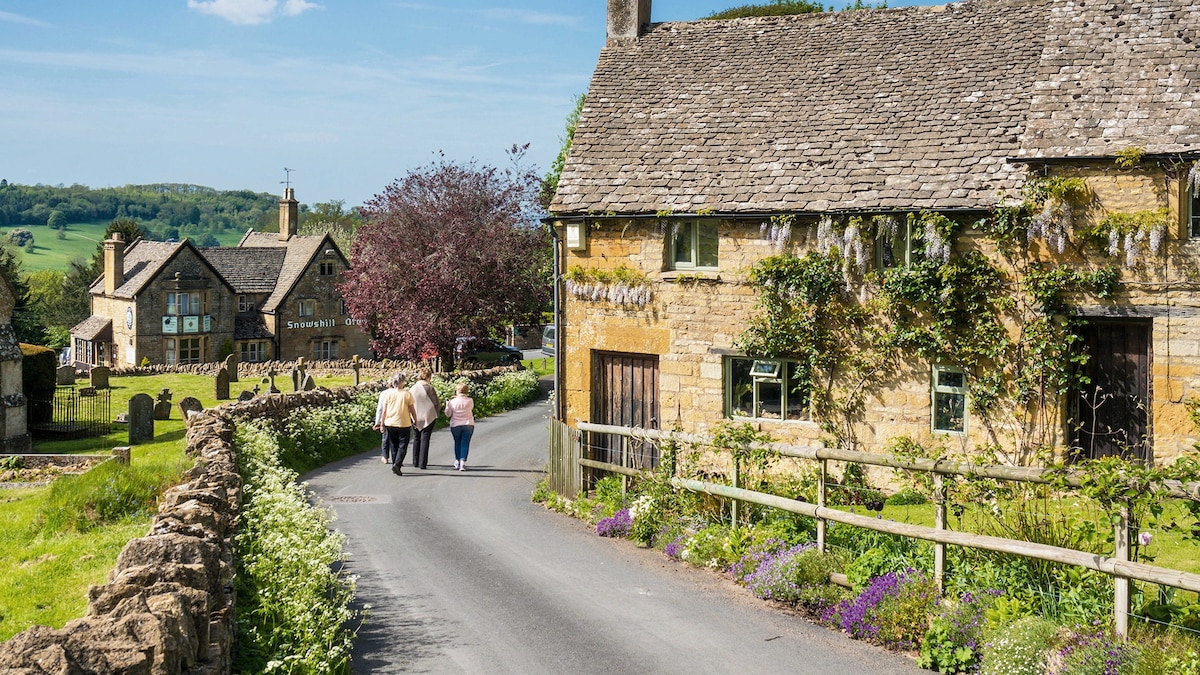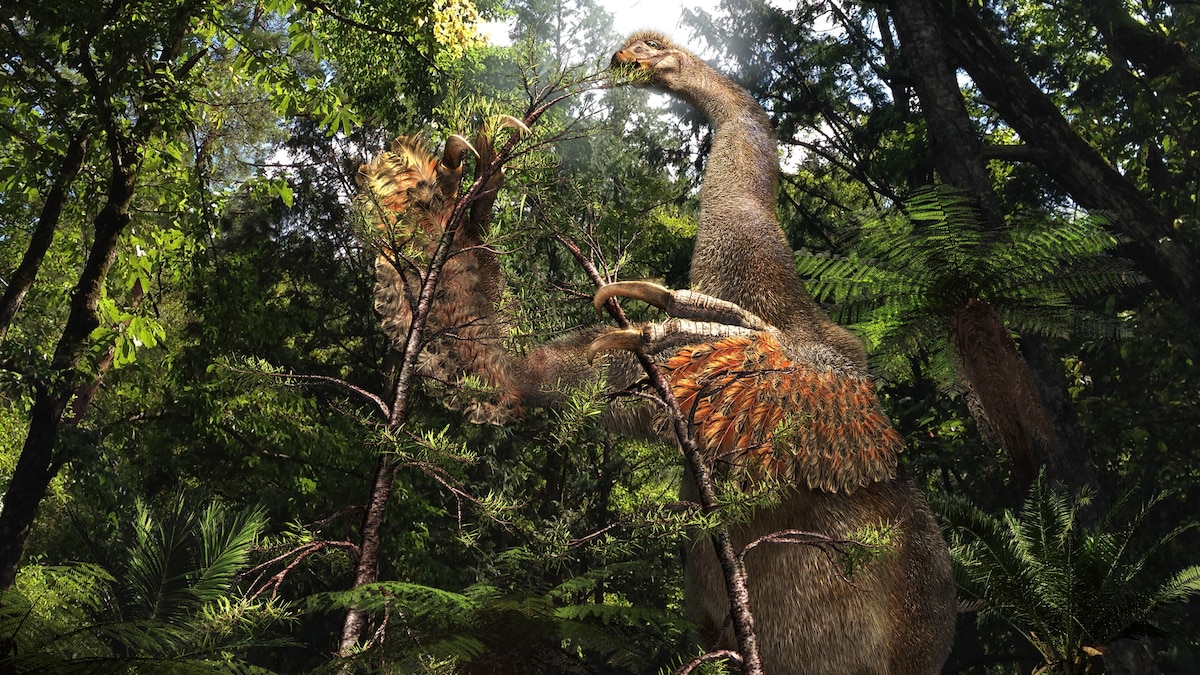Now Reading: Legend of Rock—a guide to Denver’s Red Rocks Park & Amphitheatre
-
01
Legend of Rock—a guide to Denver’s Red Rocks Park & Amphitheatre
Legend of Rock—a guide to Denver’s Red Rocks Park & Amphitheatre

From Bono and Bonnie Raitt to The Beach Boys and The Beatles, world-class performances are part and parcel of the small sandstone outcrop on the edge of Colorado’s Rocky Mountain foothills. Set in a red landscape of high-desert and sheer cliffs 15 miles from Denver, the 9,525-capacity Red Rocks Amphitheatre has won Pollstar’s award for best outdoor venue so many times that the award was renamed the ‘Red Rocks Award’. And while Red Rocks found fame in the 20th century as a music venue, the area’s storied past spans millennia. Though nothing can compare to catching a live show, paying a visit to Red Rocks in the daytime offers a whole other experience, with the surrounding Red Rocks Park offering 738 acres of spectacular mountain scenery, ripe for exploring on foot, mountain bike or horse. You can also get a taste of the venue’s star power at the Red Rocks Hall of Fame. Here’s four reasons to pay a visit to this remarkable destination.
Discover history as old as the hills
The structure of Red Rocks is 300 million years old, and long before recording artists belted out tunes this area was home to the Ute, Cheyenne and Arapahoe peoples. It was the Ute who discovered the area’s natural acoustics, and when the amphitheater opened in 1941, the opening event began with a ceremonial Eagle Dance and a Zuni melody. The Native American history in the area runs deep, and a ponderosa pine under which the Ute chiefs hosted tribal councils — the Inspirational Tree — still stands at the foot of Dinosaur Ridge, northeast of Red Rocks.

The venue is known for its acoustic qualities, with the ancient sandstone rocks acting as a natural amplifier.
Photograph by EyeEm Mobile GmbH, Getty
Learn about the who’s who of rock
The first major rock concert at Red Rocks was in 1964 by the biggest band in the world: The Beatles. Amazingly, it was the only concert on the Mop Tops’ first US tour that didn’t sell out, with around 7,000 tickets sold (at $6.60 a pop).
The Beatles are just one of the many big names who’ve graced this stage, including the likes of Bruce Springsteen, Neil Young, Bob Dylan, Carlos Santana, Diana Ross and Pearl Jam. When Jimi Hendrix appeared in 1968, ushering in the psychedelic era, he proclaimed, “that was groovy”. And perhaps the single most famous Red Rocks moment came in a fortuitous way — a combination of rainy weather, a blood-red mist, giant flames bursting from on top of the rocks and U2’s Bono waving a white flag in the air as the band belted out Sunday Bloody Sunday.

The 9,525 capacity amphitheatre has 70 rows, each hand carved into the hill in the 1930s.
Photograph by DENVER ARTS & VENUES
You can find out about all the historic stories and celebrated artists in the Visitor Center, the highlight of which is the Red Rocks Hall of Fame, where performers have been inducted nearly every year since 2003. The space is due to reopen after a renovation in March 2025.
Experience show night
Before a show at Red Rocks begins, you can head to the nearby town of Morrison and join locals at restaurants and bars like the Hungry Goat Scratch Kitchen and Wine Bar for steak and fries, or Red Rocks Beer Garden serving freshly made burritos and Colorado-brewed beer. Those in the party mood can make their way to the venue’s parking lots for a tailgate, as concert-goers gather two hours ahead of showtime to eat, drink and revel in the atmosphere. You won’t find a better car park view than this — with panoramic vistas of the amphitheatre, the distant mountains and the Denver skyline. And when you take your seat for the concert, you get two shows: the live music blasting from the stage and the city lights below, twinkling against lavender and tangerine clouds.

There are five trails to choose from in Red Rocks Park, the longest being the Red Rocks Trail.
Photograph by PhotosByTim, Getty
Take to the trails
Within 738-acre Red Rocks Park, a number of hiking trails weave their way under the shadows of outlandish stone formations. The short Geologic Overlook Trail features a picnic spot and beautiful views, while the longer Red Rocks Trail at the east side of the park — merging into Matthews/Winters Park — forms a six-mile loop with the Dakota Ridge Trail. Although challenging in parts, the trail takes in wide meadows and the park’s rust-hued towering monoliths. Its rolling terrain is also accessible to experienced mountain bikers and horse riders. The nearby town of Golden — located near head of the Dakota Ridge trail — has numerous bike rental stores, while Bear Creek Stables in Morrison offers guided rides with panoramic views of Red Rocks Park and Amphitheatre.
This paid content article was created for Red Rocks Park and Amphitheatre. It does not necessarily reflect the views of National Geographic, National Geographic Traveller (UK) or their editorial staffs.
To subscribe to National Geographic Traveller (UK) magazine click here.(Available in select countries only).

























